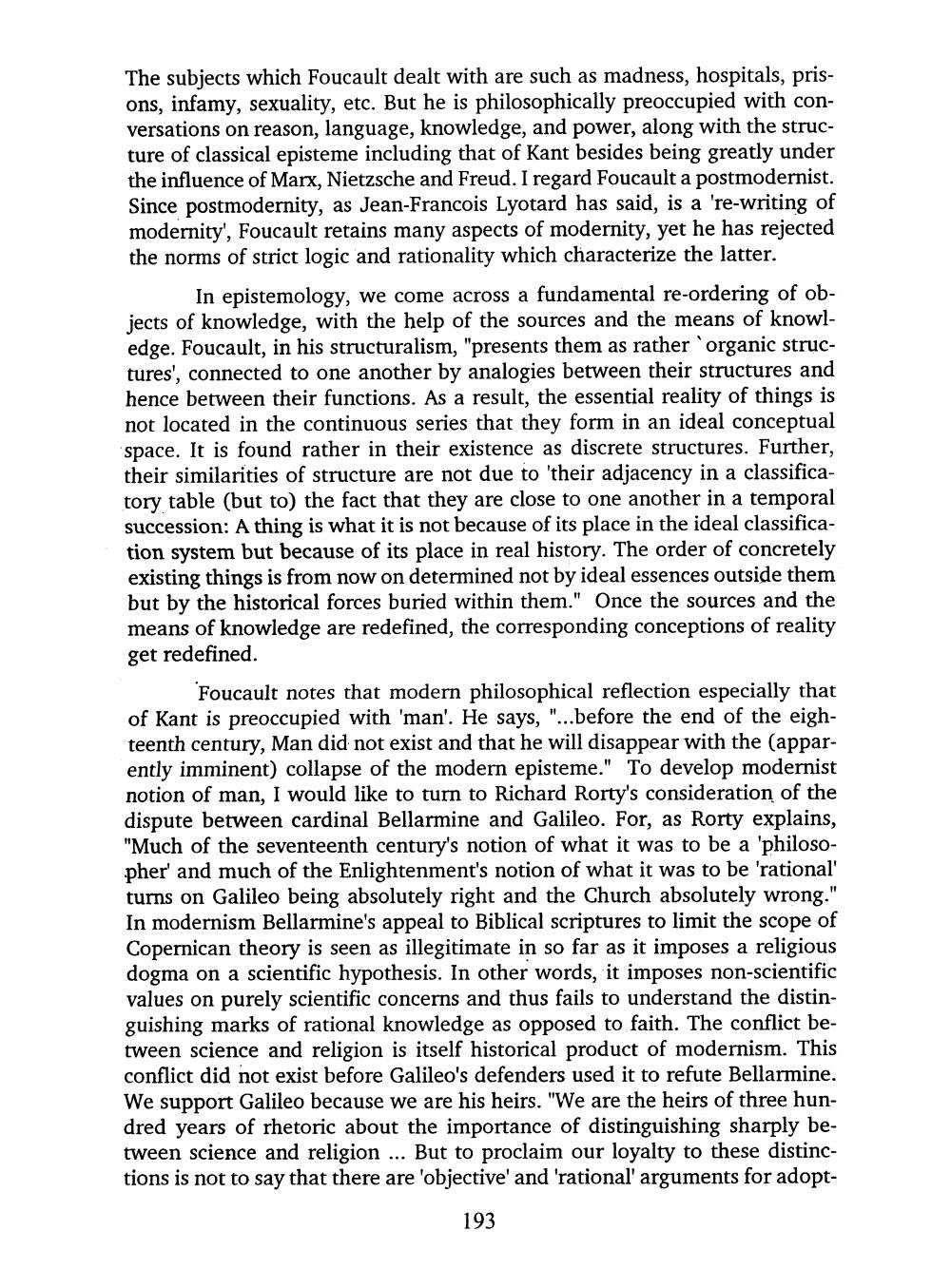________________
The subjects which Foucault dealt with are such as madness, hospitals, prisons, infamy, sexuality, etc. But he is philosophically preoccupied with conversations on reason, language, knowledge, and power, along with the structure of classical episteme including that of Kant besides being greatly under the influence of Marx, Nietzsche and Freud. I regard Foucault a postmodernist. Since postmodernity, as Jean-Francois Lyotard has said, is a 're-writing of modernity', Foucault retains many aspects of modernity, yet he has rejected the norms of strict logic and rationality which characterize the latter.
In epistemology, we come across a fundamental re-ordering of objects of knowledge, with the help of the sources and the means of knowledge. Foucault, in his structuralism, "presents them as rather organic structures', connected to one another by analogies between their structures and hence between their functions. As a result, the essential reality of things is not located in the continuous series that they form in an ideal conceptual space. It is found rather in their existence as discrete structures. Further, their similarities of structure are not due to 'their adjacency in a classificatory table (but to the fact that they are close to one another in a temporal succession: A thing is what it is not because of its place in the ideal classification system but because of its place in real history. The order of concretely existing things is from now on determined not by ideal essences outside them but by the historical forces buried within them." Once the sources and the means of knowledge are redefined, the corresponding conceptions of reality get redefined.
Foucault notes that modern philosophical reflection especially that of Kant is preoccupied with 'man'. He says, "...before the end of the eighteenth century, Man did not exist and that he will disappear with the (apparently imminent) collapse of the modern episteme." To develop modernist notion of man, I would like to turn to Richard Rorty's consideration of the dispute between cardinal Bellarmine and Galileo. For, as Rorty explains, "Much of the seventeenth century's notion of what it was to be a 'philosopher' and much of the Enlightenment's notion of what it was to be 'rational turns on Galileo being absolutely right and the Church absolutely wrong." In modernism Bellarmine's appeal to Biblical scriptures to limit the scope of Copernican theory is seen as illegitimate in so far as it imposes a religious dogma on a scientific hypothesis. In other words, it imposes non-scientific values on purely scientific concerns and thus fails to understand the distinguishing marks of rational knowledge as opposed to faith. The conflict between science and religion is itself historical product of modernism. This conflict did not exist before Galileo's defenders used it to refute Bellarmine. We support Galileo because we are his heirs. "We are the heirs of three hundred years of rhetoric about the importance of distinguishing sharply between science and religion ... But to proclaim our loyalty to these distinctions is not to say that there are 'objective' and 'rational' arguments for adopt
193




